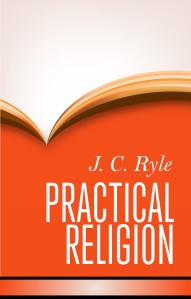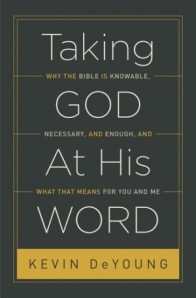 This is the sixth post in our series on the biblical view of the Bible. This time we want to turn our attention to the unity of Scripture. To speak of the unity of Scripture is to say that the Bible speaks with a one voice. In the Bible we do not have two separate books with two different messages, but one book (even if given in two Testaments) with a unified & consistent message. Not only does the Bible not contradict itself, but its message from start to finish (from Genesis to the book of Revelation) is indeed a consistent, unified one.
This is the sixth post in our series on the biblical view of the Bible. This time we want to turn our attention to the unity of Scripture. To speak of the unity of Scripture is to say that the Bible speaks with a one voice. In the Bible we do not have two separate books with two different messages, but one book (even if given in two Testaments) with a unified & consistent message. Not only does the Bible not contradict itself, but its message from start to finish (from Genesis to the book of Revelation) is indeed a consistent, unified one.
Look at how often the writers of the New Testament quote from, refer to, or in some way allude to the Old Testament Scriptures. For example, read through the book of Matthew (the very first book of the New Testament), and notice how often Matthew states that something about the person, work, or words of Jesus Christ are actually the fulfillment of Old Testament prophecy. It is practically the theme of the entire book! Or read through the book of Romans. In Paul’s extensive explanation of the gospel throughout that book, he quotes from or refers to the Old Testament over and over again (including such books as Genesis, Exodus, the Psalms, Isaiah, etc.) in order to make his case.
The Old and New Testaments together comprise God’s revelation of Himself to a sinful humanity. The exact same God reveals Himself in both the Old & New Testaments. In both the Old Testament and the New Testament God is referred to as “holy, holy, holy” (Isaiah 6:3 & Revelation 4:8). In both the Old and New Testament God is described as a “consuming fire” (Deuteronomy 4:24 & Hebrews 12:29). In both the Old Testament and the New Testament God judges sinners for their wickedness and unbelief. The same God who struck down Pharaoh and his armies (Exodus 14:26-31) also struck down King Herod for his attacks on His people and for not giving glory to God (Acts 12:20-24). God does not change.
Not only that, but the way of salvation does not change. The Old Testament (and not just the New Testament) is about Jesus Christ and the way of salvation by the grace of God through faith in Him. Jesus Himself said that Moses (the human author of the first five books of the Old Testament – Genesis through Deuteronomy) wrote about Him (John 5:46). The Apostle Paul twice reminds us that Abraham (the father of the Jews) was saved by faith (Romans 4:3 & Galatians 3:6). And where did Paul get that notion? From Genesis 15:6, which says that Abraham “believed the LORD, and he counted it to him as righteousness.”
I hope that you have found this to be helpful and illuminating. But most of all I hope that you come to see Christ in all of the Scriptures and come to Him by faith for eternal life.


